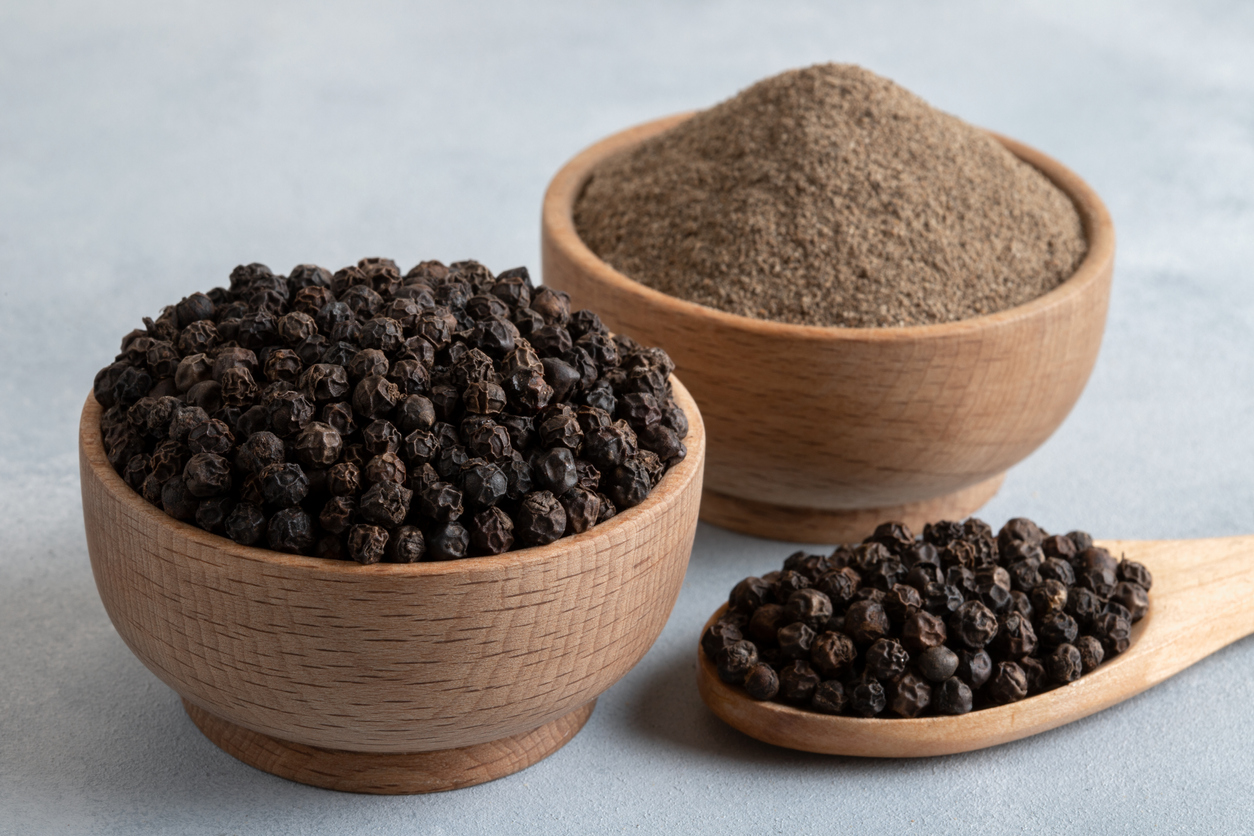From Spice Rack to Stock Market: How the Black Pepper Shortage is Affecting Prices
From Spice Rack to Stock Market: How the Black Pepper Shortage is Affecting Prices
Are you a fan of adding a little spice to your life? Well, brace yourself, because the world is experiencing a black pepper shortage that’s leaving tongues tingling and wallets whimpering. From gourmet restaurants to home cooks, everyone seems to be feeling the heat as prices for this beloved kitchen staple skyrocket. In this blog post, we’ll delve into the causes behind this scarcity, explore how it’s impacting global markets, and uncover some surprising alternatives that might just save your taste buds (and budget). So grab your pepper grinder and get ready for a flavor-filled journey through the complexities of the black pepper shortage!
Introduction to the Black Pepper Shortage of 2024
The year 2024 has brought about a significant shortage in the global black pepper market, leaving consumers and businesses alike feeling its impact. This sudden scarcity of black pepper has caused prices to skyrocket and has left many wondering what exactly led to this shortage.
Black pepper, also known as the “king of spices,” is one of the most commonly used spices in households and restaurants around the world. It is derived from peppercorns, which are dried berries from the Piper nigrum plant. The demand for black pepper has been steadily increasing over the years due to its unique flavor profile and numerous health benefits.
However, several factors have contributed to the current shortage of black pepper. One of the main reasons is climate change. The regions where black pepper is primarily grown, such as India, Vietnam, Indonesia, Brazil, and Malaysia, have been experiencing extreme weather conditions that have negatively affected crop yields. Droughts and floods have become more frequent in these areas, causing damage to crops and reducing their overall quality.
Another contributing factor is the rise in production costs. Due to labor shortages and higher wages for farmers, producers are facing higher operational costs than ever before. This increase in expenses ultimately gets passed on to consumers through higher prices.
Moreover, there has been a trend towards sustainable farming practices in recent years that limit or completely eliminate the use of pesticides and chemical fertilizers.
The Causes of the Shortage
The global shortage of black pepper has been a cause for concern among both consumers and businesses. This popular spice, which is widely used in various cuisines around the world, has seen a significant increase in price due to the scarcity of supply. In this section, we will delve into the main causes behind the current shortage of black pepper.
1. Adverse Weather Conditions
One of the primary reasons for the shortage is adverse weather conditions in major black pepper producing countries such as India and Vietnam. These regions experienced prolonged periods of drought and heavy rainfall, which have negatively impacted the growth and yield of black pepper plants. As a result, farmers have been unable to produce an adequate amount of quality black pepper pods, leading to a decrease in overall supply.
2. Pests and Diseases
Black pepper plants are highly susceptible to pests and diseases that can significantly reduce their productivity. The most common pests that affect these plants include thrips, mites, aphids, and beetles. These pests feed on the leaves and stems of the plant, causing damage and reducing its ability to produce healthy fruits. Moreover, fungal diseases like Phytophthora foot rot also contribute to low yields by infecting the roots of black pepper plants.
Impact on the Spice Industry and Global Economy
The spice industry has been significantly impacted by the black pepper shortage, causing a ripple effect on the global economy. As one of the most widely used spices in the world, black pepper plays a crucial role in various industries such as food and beverage, pharmaceuticals, and cosmetics. Its scarcity has led to a surge in prices and created challenges for businesses that rely on this essential ingredient.
The shortage of black pepper can be traced back to its main production regions – India and Vietnam. These two countries account for more than 50% of the global black pepper supply. However, both nations have recently experienced unfavorable weather conditions that have affected their harvests. In India, heavy monsoon rains damaged crops and led to a decrease in yield. Similarly, Vietnam faced droughts that hindered crop growth and caused significant losses for farmers.
As a result of these factors, there has been a sharp decline in black pepper production over recent years. The International Pepper Community (IPC) reported that global black pepper production fell by 6% from 2019 to 2020. This decrease is expected to continue as weather patterns become increasingly unpredictable due to climate change.
Effects on Consumer Prices
The recent black pepper shortage has caused quite a stir in the stock market, with prices skyrocketing and consumers feeling the impact on their wallets. In this section, we will delve into the effects of this shortage on consumer prices and how it is affecting our daily lives.
One of the most noticeable effects of the black pepper shortage is the increase in consumer prices. With demand far outweighing supply, suppliers have been forced to raise their prices in order to cover their costs and make a profit. This has resulted in an overall increase in the price of black pepper products such as ground pepper, whole peppercorns, and even pre-packaged spice blends that contain black pepper.
For households that use black pepper regularly in their meals, this price hike can be quite significant. In fact, according to a report by Bloomberg, consumer prices for black pepper have increased by 25% since the beginning of 2021. This means that a simple sprinkle of black pepper on your meal now comes at a higher cost than before.
But it’s not just the direct use of black pepper that is seeing an increase in prices. The spice is also commonly used as an ingredient in various food products such as sauces, marinades, and seasonings. As a result, these products are also experiencing an increase in price due to the rise in raw material costs.
Strategies for Coping with the Shortage
The global black pepper shortage has been causing a stir in the stock market, with prices of this essential spice on the rise. As consumers and businesses alike struggle to cope with the scarcity, it is important to explore strategies for handling this situation. In this section, we will discuss some effective ways to cope with the black pepper shortage.
1. Diversification of Spice Usage:
One strategy for coping with the black pepper shortage is to diversify your usage of spices. This means exploring alternative spices that can serve as substitutes for black pepper in your dishes or products. For example, you could try using cayenne pepper or paprika for a similar flavor profile or experiment with different blends of herbs and spices to create unique flavors.
2. Stocking Up:
Another way to cope with the black pepper shortage is by stocking up on available supplies. If you have a business that heavily relies on black pepper, it might be wise to purchase larger quantities while they are still available at lower prices. By doing so, you can mitigate potential price increases and ensure a stable supply for your customers.
3. Negotiating Contracts:
For businesses that have long-term contracts with suppliers, now might be a good time to renegotiate terms and prices. With the current scarcity of black pepper, suppliers may be more open to negotiating better deals in order to maintain their business relationships.
Potential Solutions and Alternatives
The black pepper shortage has caused a major disruption in the global spice market, leading to significant increases in prices. As consumers and businesses alike struggle to cope with the rising costs, it is important to explore potential solutions and alternatives that can help mitigate the impact of this shortage.
1. Diversifying Spice Usage: One of the most effective ways to combat the effects of the black pepper shortage is by diversifying our use of spices. Instead of solely relying on black pepper for its familiar taste and aroma, we can experiment with other spices such as cumin, coriander, or paprika to add flavor to our dishes. This not only helps reduce our dependence on black pepper but also introduces new and unique flavors into our cooking.
2. Growing Black Pepper Locally: Another solution to address the shortage is by growing black pepper locally. Traditionally, India and Vietnam have been major producers of black pepper, but with climate change affecting crop yields in these regions, there has been a decline in production. By encouraging local farmers in different parts of the world to grow black pepper, we can diversify its production and reduce reliance on a few countries.
3. Investing in Alternative Pepper Varieties: While traditional Tellicherry peppercorns are highly sought after for their bold flavor profile, there are other varieties of peppers available that can mimic or enhance the taste of black pepper at a lower cost.
Long-Term Effects and Future Outlook
Long-Term Effects and Future Outlook
The current black pepper shortage has had a significant impact on the prices of this popular spice. But what are the long-term effects of this shortage, and what can we expect for the future?
One of the most immediate impacts of the black pepper shortage is its effect on consumer prices. With demand outweighing supply, prices have skyrocketed in recent years, making it difficult for consumers to purchase their favorite spice. This has also led to an increase in counterfeit or adulterated pepper being sold on the market as unscrupulous traders try to take advantage of the high prices.
But beyond short-term price fluctuations, there are also potential long-term effects that could have a lasting impact on the global trade and production of black pepper.
One such effect is the shift in consumer preferences towards alternative spices. With black pepper becoming increasingly expensive, consumers may choose to replace it with other similar spices such as white pepper, which is made from matured but unripe peppercorns, or pink peppercorns, which come from a different plant altogether. This could lead to a decline in demand for black pepper in the long run and pose a threat to its position as one of the most widely used spices worldwide.
Moreover, the shortage has also sparked concerns about sustainability and environmental impact. Farmers may be tempted to overharvest their crops or use unsustainable farming practices in order to meet high demand and secure higher profits.
Conclusion: The Importance of Sustainable Practices in Agriculture
Conclusion: The Importance of Sustainable Practices in Agriculture
The current black pepper shortage is just one example of the effects of unsustainable practices in agriculture. As we have seen, factors such as climate change, deforestation, and monoculture farming can all contribute to a decrease in crop yields and quality. This not only affects supply and demand in the market, but also has far-reaching consequences for the environment and economy.
It is clear that sustainable practices are crucial for the long-term success and stability of the agricultural industry. Here are some key reasons why:
1. Environmental Impact
Sustainable practices prioritize environmental conservation by promoting methods that reduce pollution, conserve water resources, and preserve soil health. By using techniques such as crop rotation, organic fertilizers, and integrated pest management, farmers can maintain a healthy ecosystem on their land without depleting natural resources or causing harm to surrounding habitats.
2. Economic Stability
In addition to being environmentally conscious, sustainable practices also lead to better economic outcomes for farmers. By diversifying crops and implementing efficient resource management strategies, farmers can reduce their dependence on a single crop or input source. This helps mitigate risks from price fluctuations or disruptions in supply chain networks.
3. Social Responsibility
Sustainable agriculture also takes into consideration the social impact of farming practices on local communities. Fair wages for workers and safe working conditions are important aspects of sustainable farming that ensure ethical treatment of laborers.








Comments are closed.